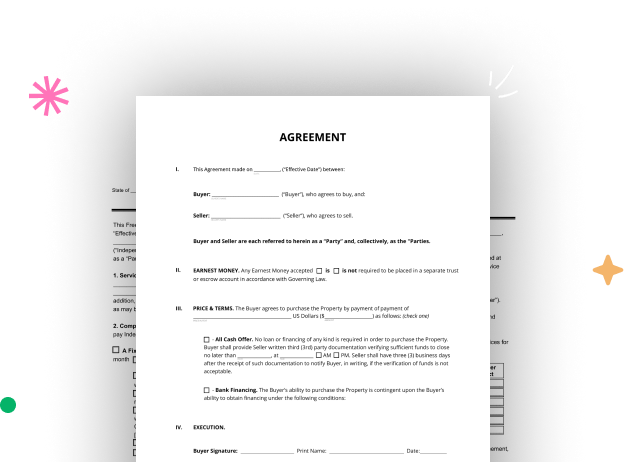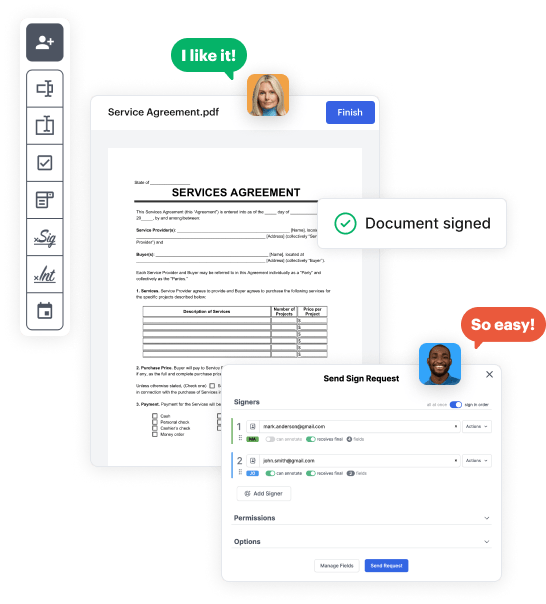

Start by logging into your DocHub account. Try out the advanced DocHub functionality at no cost for 30 days.
Once logged in, head to the DocHub dashboard. This is where you'll create your forms and manage your document workflow.
Hit New Document and choose Create Blank Document to be redirected to the form builder.
Use the DocHub tools to add and arrange form fields like text areas, signature boxes, images, and others to your form.
Add necessary text, such as questions or instructions, using the text field to guide the users in your form.
Adjust the properties of each field, such as making them compulsory or arranging them according to the data you expect to collect. Assign recipients if applicable.
After you’ve managed to design the Rent Control Law, make a final review of your form. Then, save the form within DocHub, transfer it to your chosen location, or share it via a link or email.